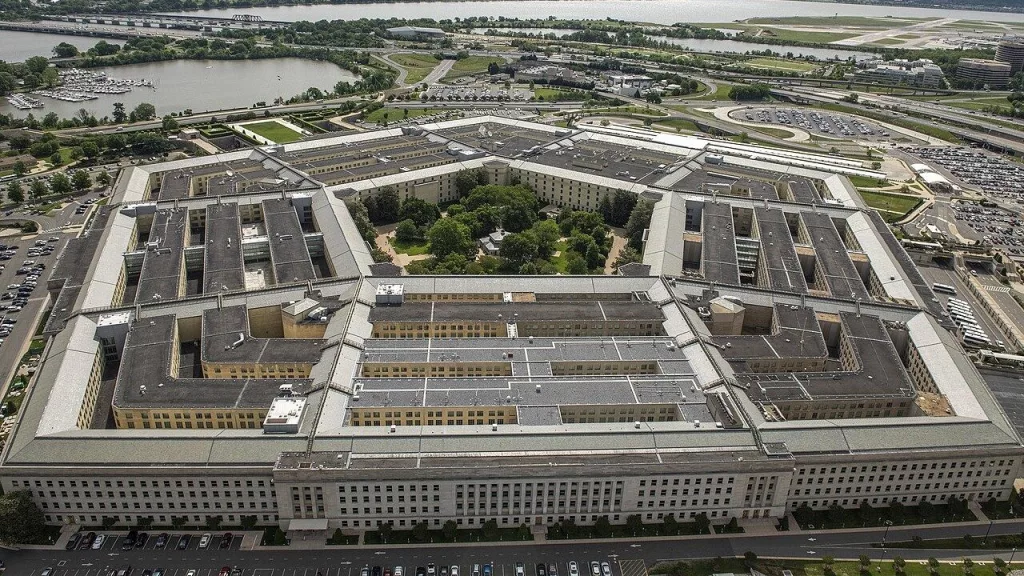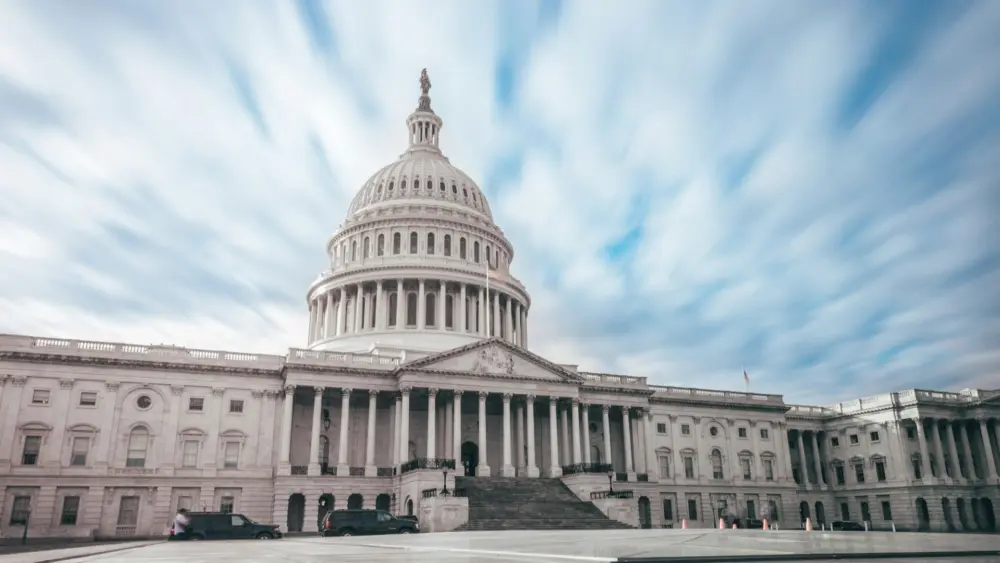WASHINGTON, D.C. — The Trump administration plans to send paychecks to active duty troops this week, despite Congress not passing legislation to allow it during the ongoing shutdown.
House Speaker Mike Johnson, who has refused to bring the House back into session to pass a stand-alone bill to provide pay for troops, welcomed the action during a Monday press conference, though he didn’t comment on whether the administration holds that legal authority.
“We are so very grateful that President Trump, again showing strong leadership, has stepped up to ensure that our troops are going to be paid on Oct. 15,” Johnson said.
Congress approved a bill just before the 2013 government shutdown began, titled the Pay Our Military Act, that appropriated funding to ensure on-time paychecks for active duty and reserve troops during that funding lapse.
A similar bill wasn’t necessary during the 2018-2019 shutdown since Congress had already approved the annual Defense Appropriations bill, one of the dozen full-year government spending bills that are supposed to become law by the start of the fiscal year on Oct. 1.
Johnson and other Republicans have faced questions for weeks about whether the House would return to pass a similar bill, but he declined. The Louisiana Republican has said repeatedly that if Democrats wanted to ensure troops get paid during the funding lapse, they would pass the stopgap spending bill that remains stalled in the Senate.
President Donald Trump announced this weekend on social media that in the absence of congressional action, his administration would provide paychecks for military members.
“That is why I am using my authority, as Commander in Chief, to direct our Secretary of War, Pete Hegseth, to use all available funds to get our Troops PAID on October 15th,” Trump wrote. “We have identified funds to do this, and Secretary Hegseth will use them to PAY OUR TROOPS.”
A Pentagon spokesperson said Monday the department “has identified approximately $8 billion of unobligated research development testing and evaluation funds (RDTE) from the prior fiscal year that will be used to issue mid-month paychecks to service members in the event the funding lapse continues past Oct. 15.
“We will provide more information as it becomes available.“
The White House did not immediately respond Monday to States Newsroom’s request for comment.
Removes pressure point
Typically during a government shutdown, federal workers are categorized as exempt, meaning they keep working, or are furloughed. All are supposed to receive back pay under a 2019 law that Trump signed, though he is now looking for ways to reinterpret it.
Active duty military members are considered essential to federal operations and keep working during a shutdown, but a missed paycheck for troops has been viewed in the past as a pressure point on lawmakers to negotiate a deal.
Trump’s actions have removed that incentive for Republicans and Democrats to broker some sort of agreement sooner rather than later.
Wendell Primus, a visiting fellow of economic studies at Brookings, said the administration’s decision to move “this amount of funds between defense accounts is highly illegal. But in many ways, it is not more illegal than all the illegal impoundments that are happening. It also has the effect of lessening the pressure on Congress to end the shutdown.”
Primus worked for former Speaker Nancy Pelosi, D-Calif., as her senior policy advisor on health and budget issues for nearly two decades.
Johnson maintained during his press conference that Republican leaders will not negotiate with Democrats on their health care concerns until after the shutdown ends.
Democratic leaders have said for months that lawmakers must reach an agreement to extend enhanced tax credits for people who buy their health insurance from the Affordable Care Act marketplace. The credits are set to expire at the end of the year.
Democrats have blocked the House-passed stopgap spending bill, which would fund the federal government through Nov. 21, from advancing until there is a bipartisan agreement on the subsidies.
Johnson said Democrats chose to sunset those tax credits at the end of this year because they were tied to helping people afford health insurance coverage during the coronavirus pandemic.
Since then, he said, the enhanced tax credits have become “a boondoggle” that caused the cost of health insurance to rise faster than he believes it would have otherwise.
“It’s a subsidy for insurance companies. When you subsidize the health care system and you pay insurance companies more, the prices are increased. That’s been the problem,” Johnson said. “So if indeed the subsidy is going to be continued, it needs real reform.”
Health care overhaul?
Johnson said lawmakers need October and part of November to determine how best to address the expiring tax credits, though he also appeared interested in overhauling other elements of the Affordable Care Act.
“Can we completely repeal and replace Obamacare? Many of us are skeptical about that now because the roots are so deep. It was really sinister, in my view, the way it was created,” Johnson said. “I believe Obamacare was created to implode upon itself, to collapse upon itself.”
Johnson, who was a freshman lawmaker in 2017 when Republicans tried to repeal and replace the ACA, said he still has post-traumatic stress disorder from the effort falling apart in the Senate amid opposition from the late Arizona Sen. John McCain, a Republican.
“It was a great frustration of mine and it always has been of President Trump’s, and we know that American health care needs dramatic reform,” he said. “Let’s just state it simply: Obamacare failed the American people.”
Johnson said any efforts to overhaul the 15-year-old law would take considerable time, but he didn’t preview any of that during his press conference.
“You can’t just rip it out at the roots and start over,” Johnson said. “It’s a very, very complicated series of measures and steps you have to take to fix it.”
Idaho Capital Sun is part of States Newsroom, a nonprofit news network supported by grants and a coalition of donors as a 501c(3) public charity. Idaho Capital Sun maintains editorial independence. Contact Editor Christina Lords for questions: info@idahocapitalsun.com.





